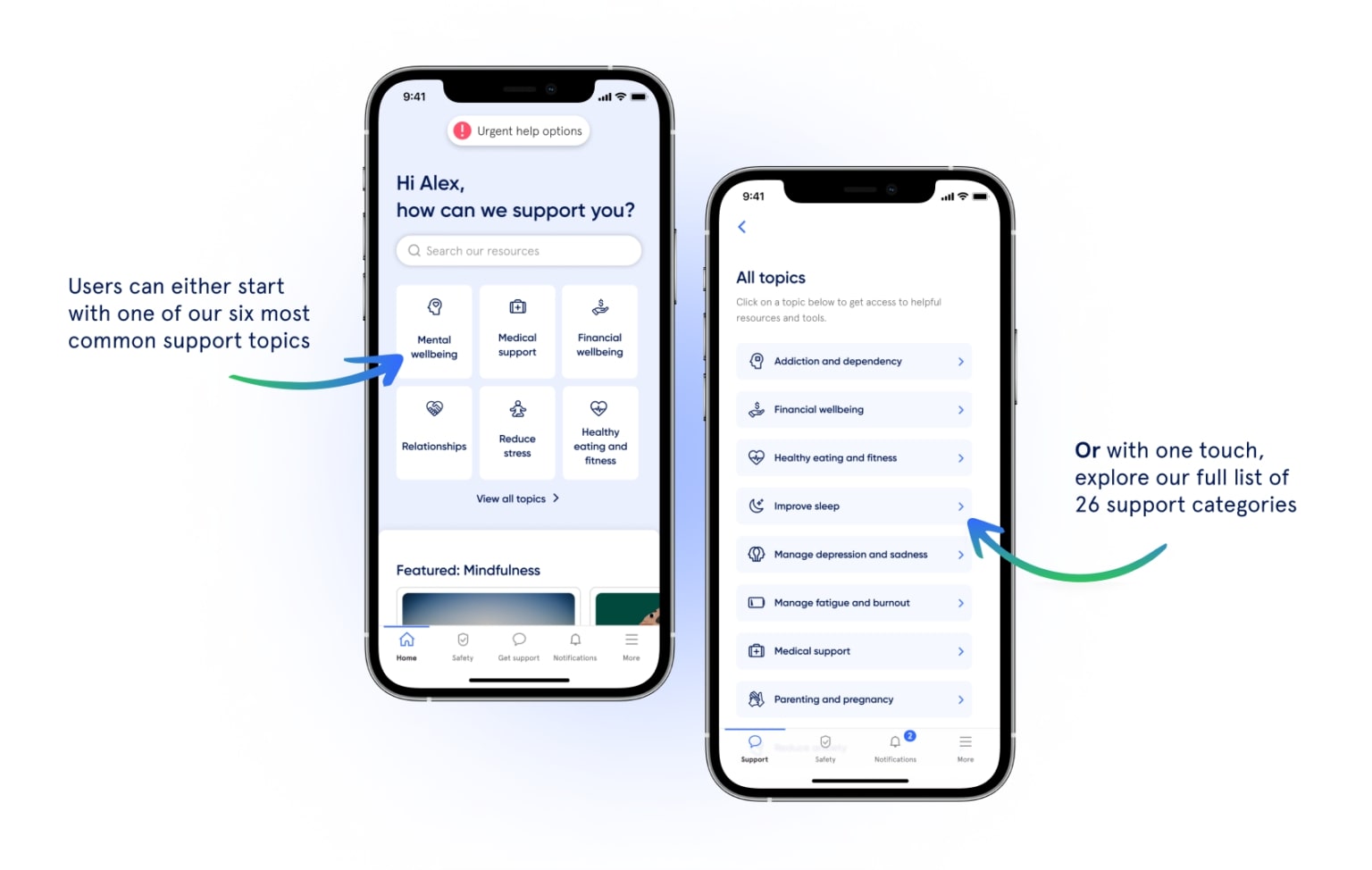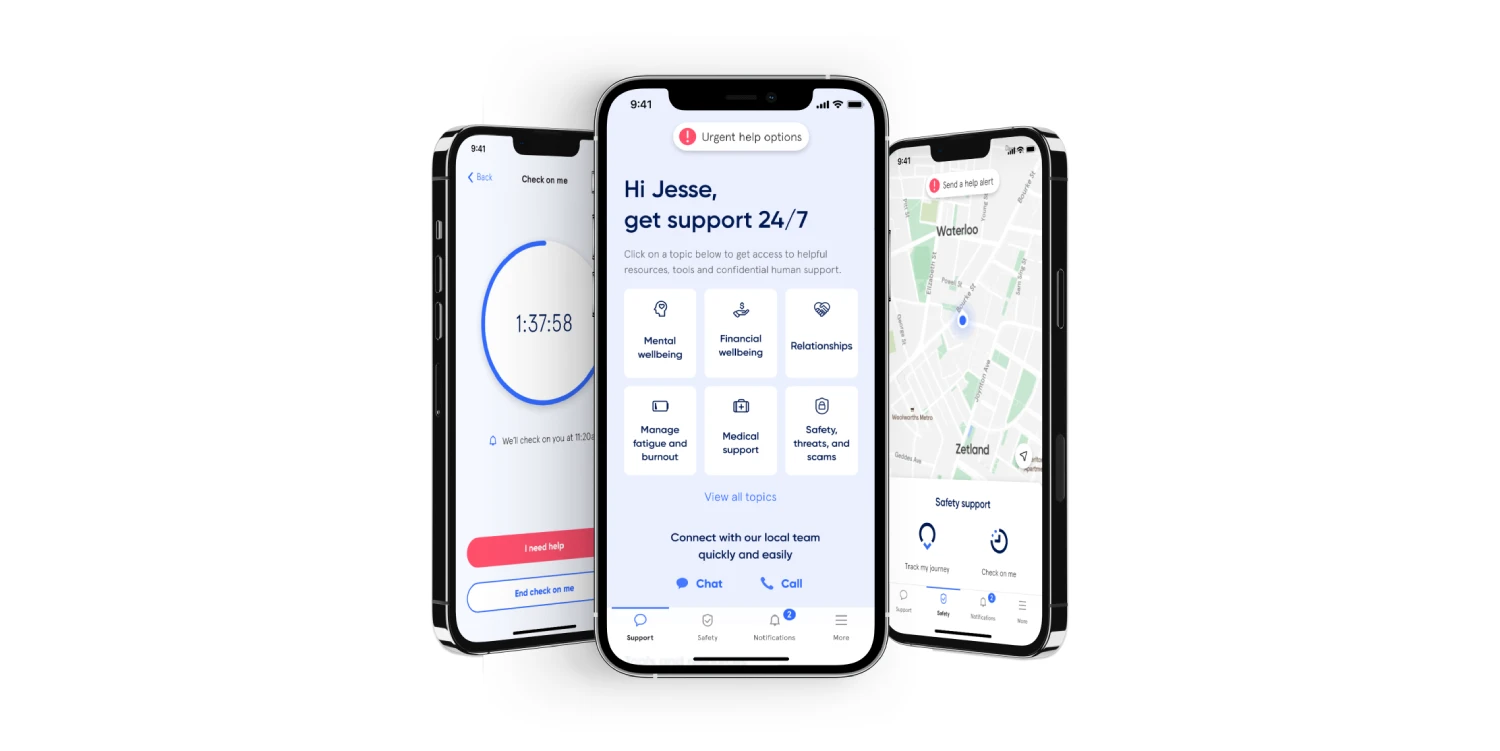It’s easy to spot an absent employee. But when it comes to employees struggling to perform at their best, the warning signs can be harder to notice.
While it might not be as visible as workplace absenteeism, presenteeism can have an even bigger impact on a company’s culture, productivity levels and overall workforce wellbeing.
Just one struggling employee can cause a ripple effect on an entire team, department or organisation. From spreading the flu around the office to lowering team morale, presenteeism can prevent your people from delivering their best work.
But the sooner you learn the signs of presenteeism and its root causes, the easier it will be to design a company culture and wellbeing programs that proactively prevent it.
What is presenteeism?
As the name suggests, presenteeism occurs when an employee turns up to work but is unable to perform their duties at their best due to illness, injury or even burnout.
While presenteeism has commonly been linked with employees experiencing physical illnesses (such as coming to the office while infected by a cold or flu), presenteeism can also occur if mental health conditions, such as depression or anxiety, are impacting staff.
“Presenteeism occurs when an individual is physically at work but is not focused on their work.”
Waking Up to Absence report
Lockton Australia, 2022
If staff are impacted by physical or mental ill health, they’re more likely to perform at below-productive levels. Flow-on impacts also include an increased risk of mistakes or human error, a higher chance of infection spreading to other team members and even a decline in company-wide morale due to employee disengagement.
Exploring the causes of employee presenteeism
The factors contributing to presenteeism are multi-faceted, and typically include:
- Lack of leave entitlements: Some employees (such as casual workers) may not receive paid sick leave, meaning they won’t be paid if they don’t turn up for a shift.
- High, demanding workloads: If staff are working in high-pressure environments with tight deadlines and limited resources, they may feel compelled to work while unwell. This may be the result of systemic understaffing or in response to a recent company restructure, with remaining employees expected to take on additional responsibilities.
- Job insecurity and volatility: If a company is experiencing a period of change, staff may feel pressured to show up at work while unwell out of fear of not being visible in the office—or becoming the target of the new round of redundancies.
- Workplace cultures that prioritise attendance: Some companies may instil a belief in staff that ‘putting in face time’ or ‘being seen’ are the most important things, taking priority over their own physical or mental health.
- Remote working arrangements: While flexible, remote working has many benefits, one potential drawback is that staff may downplay their illness or not take formal sick days when they need it—believing they can push through and manage their illness while working from home.

The impacts of presenteeism on workplaces
Presenteeism has many negative impacts on companies, notably leading to a decline in productivity and team morale.
In dollar terms, presenteeism has been estimated to cost the Australian economy $34 billion a year through a loss of productivity. Some studies suggest that presenteeism costs up to 1.7x an affected employee’s wage.
In tangible terms, the key impacts of presenteeism on workplaces can include:
- Decline in workplace productivity: Turning up to work unwell, unrested or unable to focus can dramatically reduce a staff member’s ability to perform at their best or deliver work to required deadlines. If left unaddressed for an extended period of time, this can hold a business back from reaching its productivity and financial targets.
- Increase illness recovery times: If left unaddressed, short-term health challenges may lead to more significant chronic conditions with longer recovery times.
- Rise in ill-health among your extended team: A single unwell team member attending the office while infectious can cause a spread of sickness among an entire team, department or floor. This means the impacts of presenteeism can extend beyond the individual to impact many staff across any organisation.
- Decline in team morale: The more team members who are turning up to work burnt out or unwell, the more likely they are to feel disengaged from work, which can have a ripple effect on other team members and impact the wider company culture.
The challenge is that most organisations* don’t track or quantify presenteeism, despite the very real impacts this scenario has on reducing work performance and contributing substantially to productivity costs for employers.
*Sources: ScienceDirect, Journal of Organizational Behavior
Keeping reading: Find out more in our guide to the ripple effect of presenteeism and how much it’s costing organisations.
How to combat and prevent presenteeism among employees
The good news is that employers can play a meaningful role in not only addressing presenteeism among team members but also cultivating workplace cultures that actively prevent staff from continuing to work while experiencing ill health.
Consider these three practical tips to address and prevent presenteeism in your own organisation.
1. Focus on prevention, not cure
Rather than focusing solely on resolving presenteeism, it’s far easier and more effective for employers to design workplace cultures that proactively safeguard employees from burnout and ill health.
While there are many factors that contribute to presenteeism, one key area employers can focus on is offering preventative care resources—like the content available in Sonder’s Resource Hub. From self-assessment quizzes to interactive learning modules and guided meditations, these resources encourage proactive, self-help behaviour and are geared towards tackling the earliest signs of stress, anxiety and overwhelm before they become deep-rooted problems.

With an emphasis on early intervention, these articles, videos and interactive content are designed to foster healthy daily habits to help staff prioritise wellbeing and prevent ill health.
Plus, as a digital care platform, Sonder’s data and analytics give leaders the visibility they need to spot the early warning signs of presenteeism. Through anonymised usage insights, managers can easily assess what current challenges workforces are facing and deliver tailored early interventions.
2. Normalise taking time off when needed
Managers and leaders set the tone for an organisation, particularly when it comes to work-life boundaries and prioritising health and wellbeing.
That’s why it’s critical for people leaders to create a positive, open culture where staff are encouraged to prioritise their wellbeing and take time off when needed. Along with regular 1:1 meetings and adequate team resources to support manageable workloads, managers need to cultivate a respectful, collaborative and supportive environment for staff to voice their concerns if needed.
Plus, leaders should set a good example for teams by role modelling behaviour such as taking time off when facing ill physical or mental health—rather than turning up to work battling a nasty cold.
“Employers should encourage employees to use their allotted time off and consider flexible work schedules to reduce fatigue and promote rest and recovery time, especially for frontline workers.”
Sonder’s Chief People Officer, Raechel Gavin for
HR Magazine
3. Make it easy for employees to receive timely medical care
Long GP waiting lists, gap payments and a lack of out-of-hours care can prevent staff from seeking medical attention when needed.
One positive step employers can take to solve this problem is offering employees access to medical support through a digital care platform like Sonder. Our mobile app gives staff 24/7 access to healthcare professionals, ready to answer health-related questions and advise on the best next steps, from in-person referrals to at-home treatments.
Rather than waiting days to seek professional help, this immediate support means employees won’t avoid seeking help when they need it, fast-tracking their journey back to health.
“I had no wait time and spoke to a registered nurse within minutes. My local doctor’s wait time is normally about 40 mins and then results in no appointment. The Sonder nurse was extremely caring and offered to process a further appointment with a doctor, which then led to immediate prescription emailed. Impressively a nurse contacted me twice post appointment via message through Sonder to ‘check in’. This made me feel very cared for and had a great personal touch. I think the service is outstanding and wouldn’t use my own doctor unless necessary going forward – mainly as it’s impossible to get an appointment and this saves me precious time.”
Sonder Member
Meet Sonder’s preventative care platform
Sonder is a technology company that helps organisations improve the wellbeing of their people so they perform at their best. Our mobile app provides immediate, 24/7 support from a team of safety, medical, and mental health professionals – plus onsite help for time-sensitive scenarios. Accredited by the Australian Council on Healthcare Standards (ACHS), our platform gives leaders the insights they need to act on tomorrow’s wellbeing challenges today.

Discover what you could save with Sonder
Our calculator estimates your business’ potential return on investment, based on your company size and other details. It can also help you gauge a projected boost in productivity based on reducing absenteeism, helping you make the business case for a complete care platform that intervenes earlier.
Experience a modern approach to employee care. Get in touch with Sonder today to discover how our platform can benefit your organisation.
About Sonder
Sonder is a technology company that helps organisations improve the wellbeing of their people so they perform at their best. Our mobile app provides immediate, 24/7 support from a team of safety, medical, and mental health professionals – plus onsite help for time-sensitive scenarios. Accredited by the Australian Council on Healthcare Standards (ACHS), our platform gives leaders the insights they need to act on tomorrow’s wellbeing challenges today.



